
0
+
Google Reviews

0
+
4.3 ( 1459 Ratings )
This is fundamental course, which covers basic to intermediate as a part of our Linux course. Suitable for freshers OR people who would like to enter into Infra Management related Job.
Separate Advanced courses are available for Both AWS and Devops which goes 60 to 80 hours separately each technology


Curriculum Designed by Experts
RHCSA –
• Red Hat System Administration 1 (RH124)
• Red Hat System Administration I (RH134)
RHCE –
• Red Hat System Administration III: Linux Automation with Ansible (RH294)
Total duration: 80 hrs of training (90% Practical & 10% Theory)
Red Hat System Administration I (RH124) –
Red Hat System Administration I provides a foundation for students wishing to become full-time
Linux system administrators by introducing key command line concepts and other enterprise-level tools. These concepts are further developed in the follow-on course, Red Hat System Administration II (RH134).
Prerequisites:
There are no formal prerequisites for this course; however, previous operating system administration experience will be very beneficial.
Get started with Red Hat
Enterprise Linux
Describe and define open source, Linux distributions, and Red Hat Enterprise Linux.
Access the command line
Log into a Linux system and run simple commands using the shell.
Manage files from the command line
Copy, move, create, delete, and organize files while working from the bash shell.
Get help in Red Hat Enterprise Linux
Resolve problems by using local help systems.
Create, view, and edit text files
Manage text files from command output or in a text editor.
Manage local users and groups
Create, manage, and delete local users and groups, as well as administer local password policies.
Control access to files
Set Linux file system permissions on files and interpret the security effects of different permission settings.
Monitor and manage Linux processes
Evaluate and control processes running on a Red Hat Enterprise
Linux system.
Control services and daemons
Control and monitor network services and system daemons using systemd
Configure and secure SSH
Configure secure command line service on remote systems, using OpenSSH.
Analyze and store logs
Locate and accurately interpret logs of system events for troubleshooting purposes.
Manage networking
Configure network interfaces and
000 O
settings on Red Hat Enterprise
Linux servers.
Archive and transfer files
Archive and copy files from one system to another.
Install and update software
Download, install, update, and manage software packages from Red Hat and yum package repositories.
Access Linux files systems
Access, inspect, and use existing file systems on storage attached to a Linux server.
Analyze servers and get support
Investigate and resolve issues in the web-based management interface, getting support from Red Hat to help solve problems.
Comprehensive review
Review the content covered in this course by completing hands-on exercises.
This course is intended to develop the skills needed for basic administration and configuration of Red Hat Enterprise Linux. This course introduces key command line concepts and enterprise-level tools, laying the foundation for the rapid deployment of Red Hat Enterprise Linux. The curriculum also introduces the basic administration skills needed for resolving configuration issues and integrating Red Hat Enterprise Linux systems with other existing environments.
This offering lays the foundation for secure user and group administration, and develops skills that allow administrators to use available storage solutions more efficiently and securely. This course is the first of a two-part series that turns a computer professional who knows nothing about Linux into a fully capable Linux administrator.
Red Hat has created this course in a way intended to benefit our customers, but each company and infrastructure is unique, and actual results or benefits may vary.
As a result of attending this course, you should be able to perform essential Linux administration tasks, including installation, establishing network connectivity, managing physical storage, and basic security administration.
You should be able to demonstrate these skills:
• Access the command line
• Manage files from command line
Create, view, and edit text files
Manage local users and groups
• Monitor and manage Linux processes
• Control services and daemons
• Control access to files with file system permissions
Analyze and store log files
• Configure and secure the
OpenSSH service
• Install and update software packages
Access Linux file systems
• Manage Linux networking
Recommended next exam or course:
Red Hat System Administration II (RH134) or Red Hat System Administration II with RHCSA exam (RH135)
The first of two courses covering the core system administration tasks needed to manage Red Hat
Enterprise Linux servers
Red Hat System Administration I (RH124) equips you with Linux® administration “survival skills” by focusing on foundational Linux concepts and core tasks. You will learn how to apply command-line concepts and enterprise-level tools, starting you on your journey toward becoming a full-time Linux system administrator.
This path continues with the follow-on course, Red Hat System Administration II (RH134).
This course is based on Red Hat®
Enterprise Linux 8.
Course content summary:
• Introduction to the command line
• Managing physical storage
• Install and configure software components and services
• Establish network connections and control firewall restrictions
• Monitor and manage running processes
• Manage and secure files and file systems
• Administer users and groups
Review the system log files and
journal for issues
• Troubleshoot problems and analyze systems with Red Hat
Insights
• Remotely manage systems with
SSH and the Web Console
Basic technical user skills with computer applications on some operating systems are expected.
System Administration II (RH134)
This module goes deeper into enterprise Linux administration including file systems and partitioning, logical volumes, SELinux, firewalling, and troubleshooting. Attending both
Red Hat System Administration land Red Hat System
Administration II can help you in your preparation for the Red Hat
Certified System Administrator exam (EX200).
Improve command line productivity
Run commands more efficiently by using advanced features of the bash shell, shell scripts, and various utilities provided by Red setting tuning parameters and adjusting scheduling priority of processes.
Control access to files with ALs
Interpret and set access control lists (ACLs) on files to handle situations requiring complex user and group access permissions.
Manage SELinux security
Protect and manage the security of a server by using SELinux.
Maintain basic storage
Create and manage storage devices, partitions, file systems, and swap spaces from the command line.
Manage logical volumes
Create and manage logical
Logical Volume Management
Hat Enterprise Linux.
Schedule future tasks
Schedule commands to run in the future, either one time or on a repeating schedule.
Tune system performance
Improve system performance by setting tuning parameters and adjusting scheduling priority of processes.
Control access to files with ALs
Interpret and set access control lists (ACLs) on files to handle situations requiring complex user and group access permissions.
Manage SELinux security
Protect and manage the security of a server by using SELinux.
Maintain basic storage
Create and manage storage devices, partitions, file systems, and swap spaces from the command line.
Manage logical volumes
Create and manage logicalvolumes containing file systems and swap spaces from the command line.
Implement advanced storage features
Manage storage using the Stratis local storage management system and use VDO volumes to optimize storage space in use.
Access network-attached storage
Use the NFS protocol to administer network-attached storage.
Control the boot process
Manage the boot process to control services offered and to troubleshoot and repair problems
Manage network security
Control network connections to services using the system firewall and SELinux rules.
Install Red Hat Enterprise Linux
Install Red Hat Enterprise Linux on servers and virtual machines.
Focuses on the key tasks needed to become a full-time Linux administrator
Red Hat System Administration
I (RH134) builds upon and lends context to the foundational knowledge established in Red
Hat System Administration I (RH124). This follow-on course demonstrates more detailed use
cases for Red Hat® Enterprise Linux®, preparing you for the Red Hat Certified System Administrator exam (EX200).
This course is based on Red Hat
Enterprise Linux 8.
Course content summary
• Install Red Hat Enterprise Linux using scalable methods
• Access security files, file systems, and networks
• Execute shell scripting and automation techniques
• Manage storage devices, logical volumes, and file systems
• Manage security and system access
• Control the boot process and system services
This course is geared toward
Windows system administrators, network administrators, and other system administrators who are interested in supplementing current skills or backstopping other team members, in addition to Linux system administrators who are responsible for these tasks:
• Configuring, installing, upgrading, and maintaining
Linux systems using established standards and procedures
Providing operational support
• Managing systems for monitoring system performance and availability
• Writing and deploying scripts for task automation and system administration
Prerequisite(s) for this course:
Successful completion of Red Hat
System Administration I (RH124) is recommended. Experienced Linux administrators seeking to accelerate their path toward becoming a Red Hat Certified System Administrator should start with the RHCSA Rapid Track course (RH199).
Course description:
Learn how to automate Linux system administration tasks with Ansible
Red Hat System Administration
II: Linux Automation with Ansible
(RH294 teaches the skills needed to manage large numbers of systems and applications efficiently and consistently. You will learn the techniques needed to use Ansible® to automate provisioning, configuration, application deployment, and orchestration.
This course is based on Red Hat®
Enterprise Linux® 8 and Red Hat
Ansible Engine 2.8.
Course Content Summary:
• Install Ansible / Red Hat Ansible
Engine on control nodes.
Create and update inventories of managed hosts and manage connections to them.
• Automate administration tasks with Ansible Playbooks and ad hoc commands.
• Write effective playbooks at scale
• Protect sensitive data used by
Ansible with Ansible Vault.
Reuse code and simplify playbook development with
Ansible roles.
Introduce Ansible
Describe
Deploy Ansible
Configure Ansible to manage hosts and run ad hoc Ansible commands.
Implement playbooks
Write a simple Ansible Playbook and run it to automate tasks on multiple managed hosts
Manage variables and facts
Write playbooks that use variables to simplify management of the playbook and facts to reference information about managed hosts.
Implement task control
Manage task control, handlers, and task errors in Ansible Playbooks
Deploy files to managed hosts
Deploy, manage, and adjust files on hosts managed by Ansible.
Manage large projects
Write playbooks that are optimized for larger, more
complex projects.
Simplify playbooks with roles
Use Ansible roles to develop playbooks more auickly and to reuse Ansible code.
Troubleshoot Ansible
Troubleshoot playbooks and managed hosts.
Automate Linux administration tasks
Automate common Linux system administration tasks with Ansible.
Impact on the organization
IT automation is key to managing large numbers of systems and applications efficiently and consistently at scale. This course develops the skills needed to efficiently operate and more easily scale the organization’s dynamic
IT infrastructure, accelerate application time to value, and rapidly adapt and implement needed innovation through
DevOps practices.
Red Hat has created this course in a way intended to benefit our customers, but each company and infrastructure is unique, and actual results or benefits may vary.
As a result of attending this course, you should be able to use Ansible for the purpose of automation, configuration, and management.
You should be able to demonstrate these skills:
• Install and configure Ansible or
Red Hat Ansible Engine on a contro node.
Create and manage inventories of managed hosts, as well as prepare them for Ansible automation.
• Run individual ad hoc automation tasks from the command line.
• Write Ansible Playbooks to consistently automate multiple tasks and apply them to managed hosts.
• Parameterize playbooks using variables and facts, and protect sensitive data with Ansible Vault.
• Write and reuse existing Ansible roles to simplify playbook creation and reuse code.
• Automate common Red
Hat Enterprise Linux system administration tasks using
Ansible.
Red Hat Certified Engineer (RHCE) exam on Red Hat Enterprise Linux 8 (EX294)
Advanced Automation: Ansible Best Practices (DO447)
Our Specialty:
• 100% Passing Records of RHEL 7
• Training By 16+ Years experienced Real Time Trainer
• 300+ Practical Sessions
• 100+ Scenarios and Assignments
• World class training methods
• Training until the candidate get placed
• Certification and Placement Support
• All training in reasonable cost
• 10000+ Satisfied candidates
• 5000+ Placement Records
• Corporate and Online Training in reasonable Cost
• Complete End-to-End Project with Each Course
• Data Center with Cisco UCS Servers
• World Class Lab Facility which facilitates 13 /15 /17 Servers
• Resume And Interview preparation with 100% Hands-on Practical sessions
• Doubt clearing sessions any time after the course
• Happy to help you any time after the course
• Definition and characteristics of cloud computing
• Cloud service models: laaS, PaaS, Saas
• Cloud deployment models: public, private, hybrid
• Benefits and challenges of cloud computing
• Cloud Infrastructure and Platforms
• Virtualization and containers
• Cloud providers and popular platforms (e.g., AWS, Azure, Google Cloud)
• Provisioning and managing cloud resources
•Networking and security in the cloud
• Application Development and Deployment in the Cloud
• Cloud-native application
• Containerization and orchestration (e.g., Docker, Kubernetes)
• Serverless computing
• Scalability and high availability
• Definition and principles of DevOps
• Collaboration and communication in DevOps teams
• Benefits of DevOps practices
• DevOps tools and technologies overview
• Continuous Integration and Delivery
• Version control systems (e.g., Git)
• Building and testing automation
• CI/CD pipelines
• Artifact management
• Infrastructure as Code
• Configuration management tools (e.g., Ansible, Chef, Puppet)
• Infrastructure provisioning and automation
• Infrastructure testing and versioning
• Infrastructure as Code best practices
• Monitoring and Logging
• Application performance monitoring
• Log aggregation and analysis
• Infrastructure and resource monitoring
• Alerting and incident response
• Security and Compliance in the Cloud
• Cloud security models and shared responsibility
• Identity and access management
• Security monitoring and auditing
• Compliance frameworks and best practices
• Cloud Migration and Hybrid Environments
• Strategies and considerations for migrating to the cloud
• Hybrid cloud architectures
• Cloud cost management and optimization
• Cloud vendor lock-in and interoperability
• Emerging Trends and Future of Cloud and DevOps
• Serverless computing and edge computing
• Al and machine learning in DevOps
• DevSecOps and security automation
• DevOps culture and organizational transformation
• Definition and characteristics of cloud computing
• Cloud service models: laaS,PaaS, Saas
• Cloud deployment models:public, private, hybrid
• Benefits and challenges of cloud computing
• Cloud Infrastructure and Platforms
• Virtualization and containers
• Cloud providers and popular platforms (e.g., AWS, Azure, Google Cloud)
• Provisioning and managing cloud resources
• Networking and security in the cloud
• Application Development and Deployment in the Cloud
• Cloud-native application development
• Containerization and orchestration (e.g., Docker, Kubernetes)
• Serverless computing
• Scalability and high availability
• Introduction to DevOps
• Definition and principles of DevOps
• Collaboration and communication in DevOps teams
• Benefits of DevOps practices
• DevOps tools and technologies overview
• Continuous Integration and Delivery
• Version control systems (e.g.,Git)
• Building and testing automation
• CI/CD pipelines
• Artifact management
• Infrastructure as Code
• Configuration management
• Infrastructure provisioning and automation
• Infrastructure testing and versioning
• Infrastructure as Code best practices
• Monitoring and Logging
• Application performance monitoring
• Log aggregation and analysis
• Infrastructure and resource monitoring
• Alerting and incident response
• Security and Compliance in the cloud
• Cloud security models and shared responsibility
• Identity and access management
• Security monitoring and auditing
• Compliance frameworks and best practices
• Cloud Migration and Hybrid Environments
• Strategies and considerations for migrating to the cloud
• Hybrid cloud architectures
• Cloud cost management and optimization
• Cloud vendor lock-in and interoperability
•Emerging Trends and Future of Cloud and DevOps
• Serverless computing and edge computing
• Al and machine learning in DevOps
• DevSecOps and security automation
• DevOps culture and organizational transformation
• Assessment Methods:
Introduction to Cloud Computing and AWS
• Definition and characteristics of cloud computing
• Overview of AWS and its global infrastructure
• AWS service categories and use cases
• AWS pricing and billing model
• AWS Identity and Access Management (IAM)
• AM concepts and components
• User and group management
• IAM policies and permissions
• Best practices for IAM security
• AWS Compute Services
• Amazon Elastic Compute Cloud (EC2)
• EC2 instance types and pricing options
• Auto Scaling and Elastic Load Balancing (ELB)
• Serverless computing with AWS Lambda
• AWS Storage Services
• Amazon Simple Storage Service (S3)
• S3 storage classes and features
• Amazon Elastic Block Store (EBS)
• AWS Glacier and Storage Gateway
• AWS Database Services
• Amazon Relational Database Service (RDS)
• RDS database engines (MySQL,PostgreSQL, Oracle, SQL Server)
• Amazon DynamoDB
• Amazon Redshift and Aurora
• AWS Networking Services
• Amazon Virtual Private Cloud (VPC)
• Subnets, security groups, and network ACLs
• VPC peering and VPN connections
• AWS Direct Connect
• AWS Management and Monitoring
• AWS Management Console and Command Line Interface (CLI)
• AWS CloudFormation
• AWS CloudWatch for monitoring and logging
• AWS Trusted Advisor and AWS Config
• AWS Security and Compliance
• AWS shared responsibility model
• Security groups and network access control
• AWS Web Application Firewall(WAF)
• Encryption services (S3, EBS,RDS)
• AWS Application Services
• Amazon Simple Queue Service (SOS)
• Amazon Simple Notification Service (SNS)
• Amazon Simple Workflow Service (SWF)
• Amazon Simple Email Service (SES)
• AWS Deployment and Management
• AWS Elastic Beanstalk
• AWS OpsWorks
• AWS CloudFormation for infrastructure as code
• Continuous integration and deployment with AWS CodePipeline
Introduction to DevOps
• Definition and principles of DevOps
• Benefits of DevOps practices
• DevOps culture and collaboration
• DevOps and Agile methodologies
• Continuous Integration and Delivery
• Version control systems (e.g., Git)
• Building and testing automation
• CI/CD pipelines
• Artifact management
• Infrastructure as Code
• Configuration management tools (e.g., Ansible, Chef, Puppet)
• Infrastructure provisioning and automation
• Infrastructure testing and versioning
• Infrastructure as Code best practices
• Continuous Deployment and Release Management
• Release pipelines and deployment strategies
• Automated deployment tools (e.g., Jenkins, Bamboo)
• Environment management and configuration
• Rollbacks and monitoring during deployment
• Monitoring and Logging
• Application performance monitoring
• Log aggregation and analysis
• Infrastructure and resource monitoring
• Alerting and incident response
• Collaboration and Communication Tools
• Version control collaboration (e.g., GitLab, GitHub)
• Communication and collaboration platforms (e.g., Slack, Microsoft Teams)
• Issue tracking and project management tools (e.g., Jira, Trello)
• DevOps for Cloud Environments
• Cloud computing and DevOps
• Infrastructure automation in the cloud
• Scalability and elasticity considerations
• Cloud-native application development
• Security and Compliance in DevOps
• DevSecOps principles and practices
• Security testing and vulnerability scanning
• Compliance frameworks and considerations
• Secrets management and access control
• Performance Optimisation and Scalability
• Performance testing and optimisation techniques
• Horizontal and vertical scaling
• Load balancing and auto- scaling
• Caching and content delivery networks (CDNs)
• Continuous Improvement and DevOps Culture
• DevOps feedback loops and metrics
• Post-implementation reviews and retrospectives
• Continuous learning and knowledge sharing
• DevOps adoption and organizational change management
Looking to boost your career? Enroll in Data Engineering on Microsoft Azure Course Training. Learn in-demand skills like data storage, processing, and security on Azure. With this certification, you'll have the know-how to create, oversee, and improve scalable data solutions in the cloud.
Unlock exciting career opportunities with Data Engineering on Microsoft Azure Course Training. This certification prepares you for roles like Azure Data Engineer, Data Architect, and Analytics Engineer. Gain expertise in building scalable solutions, making you a sought-after professional in the field.
Drive cloud adoption with Data Engineering on Microsoft Azure Course Training. Master essential skills like data integration, storage, and security in Azure’s cloud ecosystem. This certification equips you to harness the power of cloud platforms, enabling seamless data management for scalable business solution
Boost your career with Data Engineering on Microsoft Azure Course Training.Develop your knowledge of creating adaptable and scalable data solutions.This certification enables you to efficiently manage large datasets,ensuring adaptability and performance,making you a highly valuable asset in the cloud-driven world.
Optimize your cloud spending with Data Engineering on Microsoft Azure Course Training. Learn essential cost management skills to track, allocate, and reduce expenses in Azure environments. This certification helps you efficiently manage resources, making your data solutions more cost-effective and scalable.
Learn Data Engineering for Security and Compliance with Microsoft Azure Course Training. This certification equips you with the skills to safeguard data, ensure regulatory compliance, and implement robust security protocols on Azure, making you a key asset in managing secure cloud solutions.
Radical Technologies is the leading IT certification institute in Kochi, offering a wide range of globally recognized certifications across various domains. With expert trainers and comprehensive course materials, it ensures that students gain in-depth knowledge and hands-on experience to excel in their careers. The institute’s certification programs are tailored to meet industry standards, helping professionals enhance their skillsets and boost their career prospects. From cloud technologies to data science, Radical Technologies covers it all, empowering individuals to stay ahead in the ever-evolving tech landscape. Achieve your professional goals with certifications that matter.
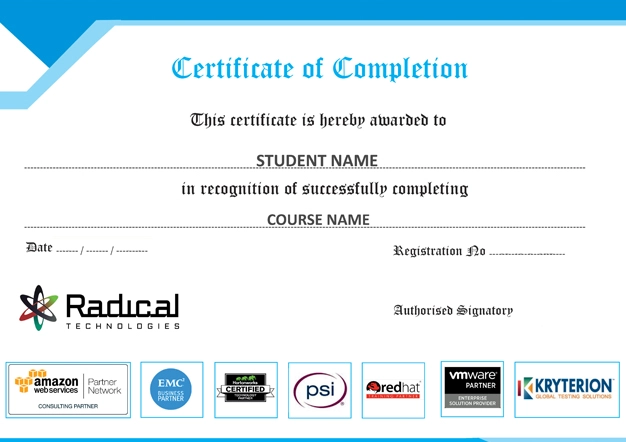


At Radical Technologies, we are committed to your success beyond the classroom. Our 100% Job Assistance program ensures that you are not only equipped with industry-relevant skills but also guided through the job placement process. With personalized resume building, interview preparation, and access to our extensive network of hiring partners, we help you take the next step confidently into your IT career. Join us and let your journey to a successful future begin with the right support.
At Radical Technologies, we ensure you’re ready to shine in any interview. Our comprehensive Interview Preparation program includes mock interviews, expert feedback, and tailored coaching sessions to build your confidence. Learn how to effectively communicate your skills, handle technical questions, and make a lasting impression on potential employers. With our guidance, you’ll walk into your interviews prepared and poised for success.
At Radical Technologies, we believe that a strong professional profile is key to standing out in the competitive IT industry. Our Profile Building services are designed to highlight your unique skills and experiences, crafting a resume and LinkedIn profile that resonate with employers. From tailored advice on showcasing your strengths to tips on optimizing your online presence, we provide the tools you need to make a lasting impression. Let us help you build a profile that opens doors to your dream career.

Infrastructure Provisioning
Implementing automated infrastructure provisioning and configuration management using Ansible. This may include setting up servers, networking devices, and other infrastructure components using playbooks and roles.

Applications Deployment
Automating the deployment and orchestration of applications across development, testing, and production environments. This could involve deploying web servers, databases. middleware, and other application components using Ansible

Continuous Integration
Integrating Ansible into CI/CD pipelines to automate software. build, test, and deployment processes. This may include automating the creation of build artifacts, running tests, and deploying applications to various environments.

The Azure Data Engineer Training Bangalore at Radical Technologies exceeded my expectations. The curriculum covered every aspect of the Azure Data Engineer Course in detail, and the hands-on labs were invaluable in gaining practical experience. Highly recommend this institute to anyone looking to advance their data engineering skills.
Radical Technologies in Bangalore offers the Best Azure Data Engineer Course with real-world scenarios and expert instructors. The Azure Data Engineer Syllabus is comprehensive, and the practical sessions helped me gain confidence in handling large datasets using Azure services.
The Azure Data Engineer Training Online provided by Radical Technologies allowed me to learn at my own pace without compromising on quality. The trainers were always available for support, making the Azure Data Engineer Bootcamp a rewarding experience.
I completed the Microsoft Azure Data Engineer Training at Radical Technologies, and it was fantastic! The Azure Data Engineer Certification Training was thorough, and I feel fully prepared for my certification exam.
Radical Technologies in Bangalore has one of the best programs for the Azure Data Engineer Course In Bangalore. The instructors have deep knowledge, and the Azure Data Engineer Training includes real-time projects that provide valuable hands-on experience.
I opted for the Azure Data Engineer Course Online through Radical Technologies and was impressed with the well-structured modules. The Azure Data Engineer Full Course covered everything I needed to know about Azure Data solutions.
The Azure Data Engineering Certification course at Radical Technologies helped me upskill and advance in my career. The institute provided excellent Azure Data Engineering Training In Bangalore with industry-relevant content and hands-on practice.
Radical Technologies has some of the best faculty for Azure Data Engineer Courses in Bangalore. Their in-depth knowledge and practical approach to teaching made the Azure Data Engineering Bootcamp incredibly valuable.
I attended the Azure Data Engineer Training In Bangalore at Radical Technologies, and the experience was exceptional. The Azure Data Engineer Certification I received helped me secure a job in a top tech company.
The Azure Data Engineer Institutes in Bangalore can’t compare to Radical Technologies. Their Azure Data Engineering Corporate Training Course gave me the practical skills I needed to excel in my role as a data engineer.
Radical Technologies' Azure Data Engineer Course is one of the most comprehensive and hands-on programs I’ve attended. The Azure Data Engineer Online Training allowed me to practice my skills in real-time, and the guidance from the trainers was superb.
I recommend Radical Technologies to anyone looking for Azure Data Engineering Training. The Azure Data Engineer Bootcamp is intensive, with expert guidance and practical applications that are vital for mastering Azure services.
I chose the Microsoft Data Engineer Course at Radical Technologies, and it was a game-changer for my career. The Azure Data Engineering Corporate Training provided me with advanced knowledge and industry-relevant skills.
The Azure Data Training at Radical Technologies in Bangalore was excellent. The trainers took the time to explain complex topics in a way that was easy to understand. The Azure Data Engineer Full Course was detailed and well-structured.
Radical Technologies offers the best Azure Data Engineer Courses in Bangalore. Their Azure Data Engineer Training Online is interactive, with live sessions and practical labs that truly enhance the learning experience.
The Azure Data Engineer Syllabus at Radical Technologies covers every topic needed for the certification exam. The Azure Data Engineer Certification Training helped me understand the nuances of data engineering on Azure.
Radical Technologies is the top Azure Data Engineer Training Institute in Bangalore. The Azure Data Engineer Course is filled with hands-on labs and real-time projects, giving me the confidence to work on Azure platforms.
The Azure Data Engineering Corporate Training at Radical Technologies helped my team upskill rapidly. The instructors tailored the Azure Data Engineering Certification course to meet our company’s specific needs.
The Azure Data Engineer Courses at Radical Technologies are unparalleled. The Azure Data Engineering Course offered both theoretical knowledge and practical application, making it the ideal course for anyone looking to specialize in Azure.
I completed the Microsoft Azure Data Engineer Training at Radical Technologies in Bangalore. The support and mentorship I received during the Azure Data Engineering Bootcamp helped me pass my certification exam on the first try.
The Azure Data Engineer Certification I earned from Radical Technologies opened many doors for me in the industry. The Azure Data Engineer Training Bangalore provided a comprehensive and detailed learning experience.
Radical Technologies offers the Best Azure Data Engineer Course in Bangalore. The Azure Data Engineer Certification Training covered all the key Azure services and included in-depth practical exercises that were incredibly beneficial.
I highly recommend the Azure Data Engineer Training Online at Radical Technologies for professionals looking to upskill. The Azure Data Engineering Courses provide a strong foundation for building scalable Azure data solutions.
The Azure Data Engineering Certificate I earned from Radical Technologies boosted my career prospects. The Azure Data Engineering Training In Bangalore was well-organized, with a focus on real-world applications of Azure services.
Radical Technologies is hands-down the best Azure Data Engineer Training Institute in Bangalore. The Azure Data Engineer Course In Bangalore was highly practical, and the trainers were industry experts who shared valuable insights.








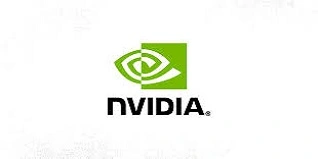
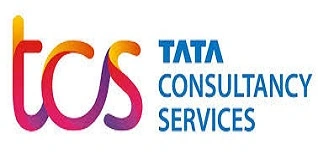

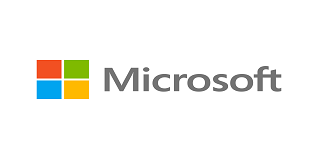
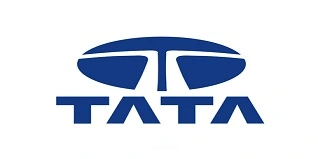

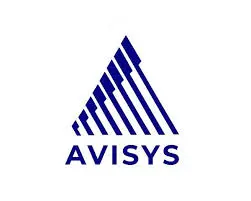




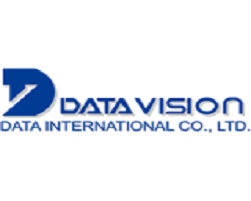
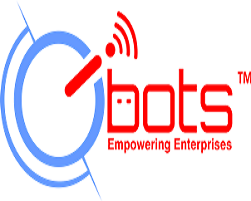
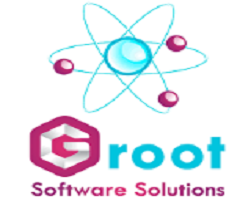
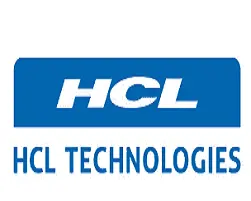
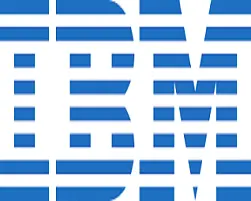
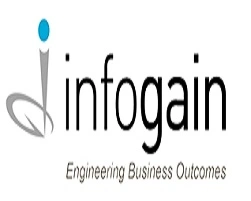
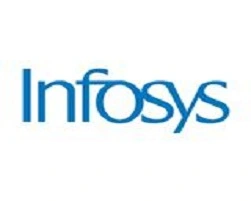
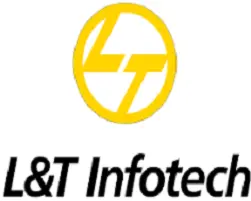
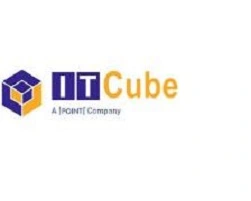
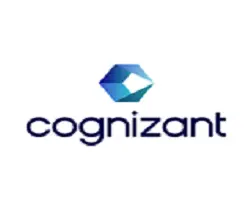
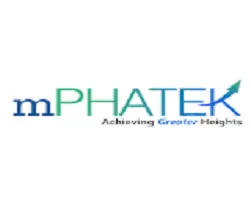
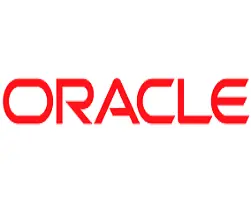

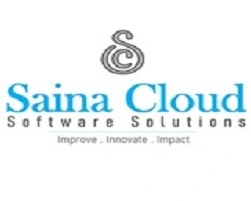




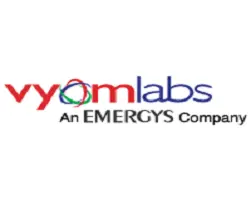

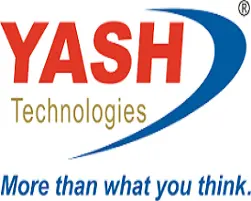
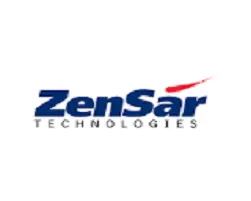
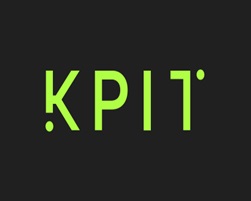
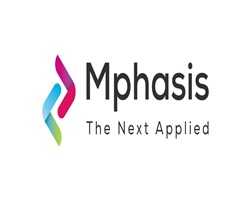
A Microsoft Azure Data Engineer is responsible for designing, implementing, and managing data solutions that use Azure’s cloud services. This includes creating data pipelines, ensuring the security of data, optimizing performance, and integrating Azure services to build scalable, efficient systems for data storage, processing, and analytics.
Azure Data Engineers commonly use Azure Data Lake, Azure Blob Storage, and Azure SQL Database for data storage. Azure Data Lake is ideal for big data workloads, Blob Storage is used for unstructured data, and SQL Database supports structured data and relational workloads.
Azure Data Engineers ensure data security by implementing Azure Active Directory (Azure AD) for authentication, using Encryption-at-Rest for data protection, and configuring Role-Based Access Control (RBAC) to manage permissions. They also apply Azure Key Vault to secure sensitive data like passwords and connection strings.
Azure Data Factory (ADF) is a key service for creating ETL (Extract, Transform, Load) pipelines. It allows Azure Data Engineers to integrate data from multiple sources, automate data workflows, perform transformations, and load data into storage or analytics services like Azure Synapse Analytics or Azure SQL
ETL pipelines extract data from various sources, transform it into a usable format, and load it into storage or analytics platforms. In Azure, ETL pipelines are crucial for preparing and organizing large datasets for analysis, ensuring data consistency, and automating data processes for real-time or batch analytics.
The most important certification for Azure Data Engineers is the Microsoft Certified: Azure Data Engineer Associate certification, which focuses on data storage, integration, processing, and security in the Azure cloud. The primary exam for this certification is Exam DP-203: Data Engineering on Microsoft Azure.
Azure Data Engineers utilize services like Azure Databricks, Azure HDInsight, and Azure Synapse Analytics to process, analyze, and store large volumes of structured and unstructured data. These tools enable parallel processing, distributed computing, and real-time data analytics to handle big data workloads.
Azure Synapse Analytics is an integrated platform for big data and analytics. It allows Azure Data Engineers to perform on-demand data analytics using SQL and Apache Spark, ingest data at scale, and integrate with other Azure services. It’s used to build modern data warehouses and perform real-time analytics.
Azure Data Lake is optimized for big data analytics, providing hierarchical storage for both structured and unstructured data. Azure Blob Storage, on the other hand, is primarily used for storing unstructured data like images, videos, and backups. Data Lake supports more advanced big data analytics scenarios, while Blob Storage is more general-purpose.
Azure Data Engineers use services like Azure Stream Analytics, Azure Event Hubs, and Azure IoT Hub to build real-time data processing solutions. These services enable ingestion, processing, and analysis of data streams from sources like IoT devices, applications, and logs.
Azure Data Engineers optimize data pipelines by using Data Partitioning, Caching, and Auto-scaling in services like Azure Data Factory and Azure Databricks. They also monitor pipelines with tools like Azure Monitor to identify bottlenecks and optimize resource usage.
Azure Databricks is a collaborative, cloud-based platform that integrates with Apache Spark to process big data. Azure Data Engineers use Databricks for real-time data processing, machine learning, and data analytics by creating scalable data pipelines and collaborating with data scientists.
Common challenges during data migration include ensuring data integrity, managing downtime, and handling differences in data formats. Azure Data Engineers address these challenges by using tools like Azure Database Migration Service for a seamless transfer, performing data validation, and ensuring minimal disruption during the migration.
Azure Data Engineers collaborate with data scientists to prepare, clean, and transform data for machine learning models. They use services like Azure Machine Learning, Azure Databricks, and Data Factory to build pipelines that automate the data flow from raw data to model training and deployment.
Azure Data Engineers use Azure Monitor, Log Analytics, and Azure Application Insights to track the health and performance of data pipelines. These tools provide insights into potential issues, bottlenecks, and failures, allowing engineers to optimize pipeline performance and ensure data reliability.
Kochi | Fort Kochi | Mattancherry | Ernakulam | Marine Drive | Kakkanad | Palarivattom | Kadavanthra | Chullikkal | Elamakkara | Kochi Port | Vyttila | Aluva | Thrippunithura | Panampilly Nagar | Edappally | Kothad | Njarackal
I had an amazing experience with this service. The team was incredibly supportive and attentive to my needs. The quality of the work exceeded my expectations. I would highly recommend this to anyone looking for reliable and professional service."
I had an amazing experience with this service. The team was incredibly supportive and attentive to my needs. The quality of the work exceeded my expectations. I would highly recommend this to anyone looking for reliable and professional service."
I had an amazing experience with this service. The team was incredibly supportive and attentive to my needs. The quality of the work exceeded my expectations. I would highly recommend this to anyone looking for reliable and professional service."
I had an amazing experience with this service. The team was incredibly supportive and attentive to my needs. The quality of the work exceeded my expectations. I would highly recommend this to anyone looking for reliable and professional service."
I had an amazing experience with this service. The team was incredibly supportive and attentive to my needs. The quality of the work exceeded my expectations. I would highly recommend this to anyone looking for reliable and professional service."
The Microsoft Azure Data Engineer Certification is designed to equip professionals with the skills and knowledge required to design and implement the management, monitoring, security, and privacy of data using the full stack of Azure data services. This certification caters to data professionals responsible for building scalable, secure, and reliable data solutions on the Azure platform.
Azure is a leading cloud platform with a robust ecosystem of services designed specifically for data engineering. As businesses continue to adopt cloud technologies, the demand for skilled data engineers is at an all-time high. By earning the Azure Data Engineer certification, you position yourself at the forefront of this digital transformation, making you a highly sought-after asset in the job market.
The Microsoft Azure Data Engineer Certification focuses on the end-to-end data pipeline process, including the ingestion, transformation, and storage of data. This certification prepares candidates to work on tasks such as:
This course will equip you with practical skills in data engineering, including:
1.Data Storage Solutions:
2.Data Integration and Transformation:
3.Data Security:
4.Data Monitoring and Optimization:
5.Working with Big Data:
To earn the Microsoft Certified: Azure Data Engineer Associate certification, candidates must pass two key exams:
Exam DP-203: Data Engineering on Microsoft Azure – This is the core exam that tests your knowledge of various Azure data services, data solutions design, and best practices.
Who Should Enroll?
Data Engineers: Professionals who are already in the field of data engineering and want to enhance their cloud computing skills.
Database Administrators: Those looking to transition into the role of a data engineer or expand their skill set to manage data solutions on Azure.
IT Professionals: Individuals with a background in data management or cloud services who want to specialize in Azure’s data engineering domain.
Business Intelligence Professionals: Those working in BI, reporting, and analytics roles who want to gain expertise in managing data pipelines and big data platforms on Azure.
While there are no formal prerequisites for this certification, having a basic understanding of data storage and processing concepts, as well as experience working with Azure services, will significantly benefit your learning journey. Familiarity with SQL and Python programming is recommended.
Microsoft Azure Data Engineers play a critical role in designing, implementing, and managing data solutions that empower businesses to make data-driven decisions. The expertise of a data engineer helps organizations leverage Azure’s cloud services to handle massive datasets, optimize workflows, and ensure data security. Here are the key applications of Azure Data Engineers in various industries:
1. Data Warehousing and Analytics Solutions
Azure Data Engineers are essential in creating and managing data warehousing solutions. Using services like Azure Synapse Analytics, they can build scalable, high-performance platforms for storing and analyzing structured and unstructured data. These warehouses provide the foundation for business intelligence (BI) tools that help organizations generate actionable insights from their data.
Industry Example: Retailers can store transactional data in Azure Synapse and analyze customer purchase behavior, sales trends, and inventory forecasts to optimize their operations.
2. Big Data Processing
Azure Data Engineers are responsible for designing big data solutions that handle massive volumes of data from various sources. They use tools like Azure Databricks, HDInsight, and Azure Data Lake to process and analyze large datasets efficiently. These solutions enable businesses to harness data streams, process information in real time, and gain insights from unstructured data sources such as social media, IoT devices, and sensors.
Industry Example: In healthcare, Azure-based big data solutions can process patient data from various systems, helping doctors make real-time decisions, improving patient care, and facilitating predictive analysis for personalized treatments.
3. Data Integration and ETL Pipelines
One of the core tasks of an Azure Data Engineer is developing ETL (Extract, Transform, Load) pipelines to manage data integration from diverse sources. Azure services like Azure Data Factory help automate the extraction, transformation, and loading of data, ensuring that information is efficiently moved across systems and ready for analysis.
Industry Example: Financial institutions can integrate data from various systems, such as customer databases, market feeds, and transaction logs, to perform detailed risk assessments and fraud detection.
4. Cloud-Based Data Security and Governance
With a focus on data governance, security, and compliance, Azure Data Engineers apply industry best practices to ensure that sensitive information is protected. They use Azure’s security tools, such as Azure Key Vault, Azure Active Directory, and Encryption-at-Rest, to safeguard data across cloud services.
Industry Example: In the government and public sector, data engineers ensure that sensitive citizen data is protected by adhering to strict compliance standards like GDPR, HIPAA, and other regulations.
5. Real-Time Data Processing
Azure Data Engineers design systems to handle real-time data processing using tools like Azure Stream Analytics and Azure Event Hubs. These platforms enable businesses to analyze data as it arrives, providing immediate insights and allowing for rapid decision-making.
Industry Example: E-commerce companies can use real-time data processing to monitor user activity on their websites, providing personalized recommendations and dynamic pricing adjustments.
6. Machine Learning and AI Data Pipelines
Azure Data Engineers collaborate closely with data scientists and AI teams to build data pipelines that support machine learning and AI projects. Using Azure services such as Azure Machine Learning and Cognitive Services, they ensure that the necessary data is prepared, cleaned, and available for model training and deployment.
Industry Example: In the automotive industry, Azure data solutions can enable autonomous vehicle systems by processing large volumes of sensor data and feeding it into machine learning models to improve self-driving capabilities.
7. IoT Data Management
With the rise of the Internet of Things (IoT), Azure Data Engineers are tasked with managing and analyzing the data generated by connected devices. They design solutions using Azure IoT Hub and Azure Time Series Insights to gather, store, and analyze data from sensors and IoT devices in real time, helping businesses improve operational efficiency and asset management.
Industry Example: Manufacturing companies can use IoT data solutions to monitor equipment performance and predict maintenance needs, reducing downtime and increasing productivity.
8. Data Migration to the Cloud
Azure Data Engineers are instrumental in helping organizations migrate their on-premise data infrastructure to the cloud. They plan and execute data migrations to Azure using tools like Azure Database Migration Service and Azure Migrate. This ensures that the transition is seamless and the data integrity is maintained throughout the migration process.
Industry Example: Banks moving their legacy systems to Azure benefit from cloud scalability, reducing operational costs and improving disaster recovery capabilities.
9. Optimizing Data Performance and Scalability
Azure Data Engineers also focus on optimizing the performance and scalability of data systems. They fine-tune data architectures, optimize queries, and manage resources to ensure that applications and data solutions run efficiently. By using Azure’s elastic scaling capabilities, data engineers can adjust resource allocations based on workload demands.
Industry Example: Streaming platforms can optimize their data pipelines to deliver high-quality video content to users by dynamically scaling resources based on viewership demand.
10. Developing Data Solutions for Reporting and Visualization
Azure Data Engineers integrate with BI tools such as Power BI to enable businesses to visualize their data in meaningful ways. By designing efficient data models and optimizing data storage solutions, they help transform raw data into interactive dashboards and reports for decision-makers.
Industry Example: Executives in marketing can use Power BI dashboards powered by Azure data solutions to track campaign performance, customer engagement, and ROI in real time.
At Radical Technologies, we are committed to providing world-class Azure Data Engineer Training in Bangalore, helping aspiring data professionals master the skills needed to excel in the rapidly growing field of cloud data engineering. As the leading institute for Azure Data Engineer Course In Bangalore, we offer comprehensive, hands-on training designed to meet the demands of today’s data-driven organizations.
Our Azure Data Engineer Training Bangalore program covers every aspect of the Azure Data Engineer Syllabus, ensuring that students receive in-depth knowledge of data architecture, data processing, and data storage on Microsoft Azure. Whether you prefer attending classes in-person or via Azure Data Engineer Online Training, Radical Technologies provides flexible learning options to suit your needs.
Our Azure Data Engineering Training is renowned for its practical, real-world approach. Students have access to an industry-leading Azure Data Engineer Bootcamp, which combines theory and hands-on labs to ensure they are fully prepared for their certification exams. The Microsoft Azure Data Engineer Training is tailored to cover all key topics, from data integration to security, and is led by experienced professionals who are experts in their field.
For professionals and organizations seeking Azure Data Engineering Corporate Training, we offer tailored courses that address specific business needs. Our Azure Data Engineering Corporate Training Course ensures that teams gain practical experience in building scalable, secure, and efficient data solutions on Azure.
At Radical Technologies, our Azure Data Engineer Courses are structured to ensure that both beginners and experienced professionals alike can enhance their knowledge. The Azure Data Engineer Certification Training offered here equips students with the skills and credentials needed to stand out in a competitive job market.
Our institute also offers the Azure Data Engineer Full Course, which provides a comprehensive pathway for mastering Azure Data Engineering concepts and techniques. We take pride in being one of the top Azure Data Engineer Institutes in Bangalore, with a proven track record of helping students achieve their Azure Data Engineering Certification.
Whether you are looking for Azure Data Engineer Training Online or prefer our in-person classes in Bangalore, Radical Technologies is your trusted partner for career advancement in data engineering. Join us today to enroll in the Best Azure Data Engineer Course and kick-start your journey towards becoming a certified data engineer.


(Our Team will call you to discuss the Fees)

(Our Team will call you to discuss the Fees)
